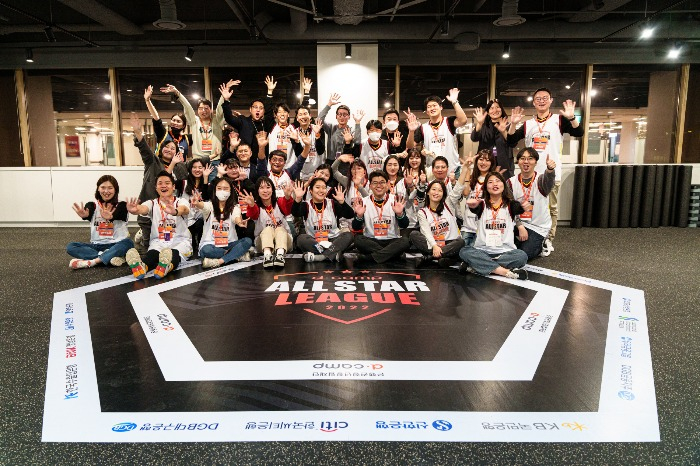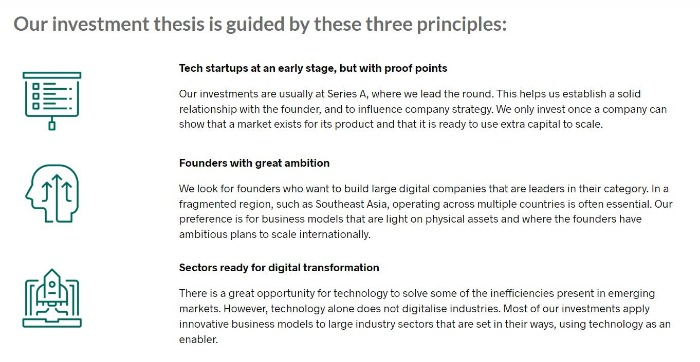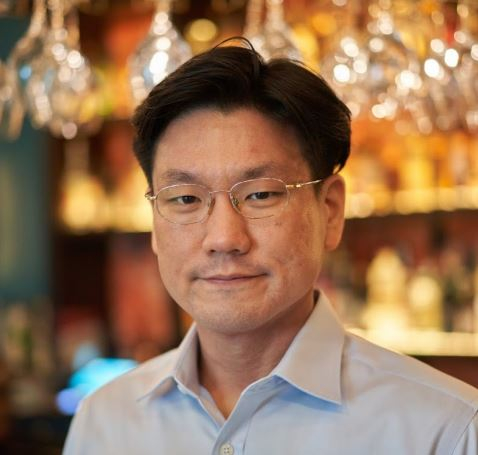Korean startups
Cento Ventures: High ROI of Korean startups still uncommon knowledge
The S. Korean startup ecosystem has drastically improved on the back of increased spending power and a sophisticated talent pool
By Nov 30, 2022 (Gmt+09:00)
4
Min read
Most Read
LG Chem to sell water filter business to Glenwood PE for $692 million


Kyobo Life poised to buy Japan’s SBI Group-owned savings bank


KT&G eyes overseas M&A after rejecting activist fund's offer


StockX in merger talks with Naver’s online reseller Kream


Mirae Asset to be named Korea Post’s core real estate fund operator



When it comes to the global startup ecosystem, South Korean cities, including the capital Seoul, often do not come to investors’ minds before Silicon Valley, New York City, or London.
Corporate Korea is better known for its family-owned conglomerates like Samsung or LG, instead of bootstrapping startups founded by college dropouts.
Despite the country being the fourth-largest economy in Asia and the tenth-largest in the world, Cento Ventures’ Partner Sang Han said the fact that you can make money by investing in Korean startups is still uncommon knowledge.
In fact, Han added his visit to Seoul was to take advantage of the largely untapped investment opportunities in Korea. He spoke with The Korea Economic Daily on the sidelines of the D.Day X D.Camp All-Star event on Nov. 24.
The Singapore-based early-stage VC firm primarily served Southeast Asia until Han joined the company in 2019.

Cento launched their third main fund worth $50 million and did the first closing of $25 million with a large chunk of the investment coming from Korean institutional investors. The Korea Venture Investment Corp. was one of them.
The government-backed fund of funds (FOF) has guidance that stipulates that general partners (GP) that receive money from KVIC have to invest back in Korea.
“Korea has become a much better place for foreign investors over time,” the 49-year-old said, who has been investing in the country since 2005.
POSSIBLE HINDRANCES
There are three main challenges that foreign institutional investors face when trying to invest in Korea, according to Han, the first being the difference in commercial codes.
The different classes of preferential shareholders aren’t straightforward for foreign investors to navigate through, which can get tricky for them to come into the country and demand additional rights.
Many investors also argue that there are excessive levels of foreign exchange control. If a certain amount of money arrives in Korea, it has to come with a specific purpose and has to be reported on a regular basis.
If something happens to that money, it has to be almost immediately reported back.
“If you are a foreign investor going through the process for the first time, it may sway your decision to do it again because it’s so painful,” Han explained.
Last but not least, investors seem to have concerns about the overall tax risk, vis-à-vis the Lone Star lawsuit.
As a Korean who has almost exclusively worked at overseas VC firms, Han described the incident as such: “The foreigners knew what they were doing. Korea was not wrong to take issue with some of the things that happened. It’s just that it could have been handled a bit more delicately.”
FOLLOWING THE MONEY
Despite the regulatory challenges, the venture capitalist said nearly all aspects of the startup sector have been enhanced, including the deepening pockets of consumers and VCs alike, as well as the more sophisticated business models and talent pool for startups.
“They have become better at monetizing,” Han elaborated. “Once you start comparing cities, you see why Seoul is so amazing. It has discretionary and disposable income at a much higher level [than Southeast Asia.]”

For instance, only specific neighborhoods in Jakarta, Indonesia would be interested in platforms that deliver pet products such as dog food or cat litter, the demand for the services would be quite pervasive and robust across the Seoul Metropolitan Area.
A number of Korean startups have successfully ventured outside of the peninsula by the virtue of applying technology and business insights they’ve developed and honed in the country.
A case in point is Hyperconnect Inc., which manages a platform that provides video and artificial intelligence-powered products. Everything that AfreecaTV Co. did domestically was a learning lesson for Hyperconnect to launch a similar service but for a global audience.
“They have insights on what works in Korea and they took it to markets where they can seek faster growth,” Han opined.
There is also an expansive network of local VCs that serve as co-investors that allows foreign investors to come with ease and comfort, he said. “The one thing I’d hate is that I go into a country, and I make an investment, and it turns out I am the only investor in town.”
When it comes to who makes the startups, Han said the quality of the people wanting to start or join future unicorns has gone up immensely. That’s thanks to the growing appetite among graduates of elite universities who traditionally would have opted to join established conglomerates for stability and decent paychecks.
Although the rise in interest in startups is a worldwide trend, Han views that the exposure to entrepreneurship in North America and Western Europe appears to have added to the allure of the startup ecosystem among Korean millennials from the upper classes.
Write to Jee Abbey Lee at jal@hankyung.com
Jee Abbey Lee edited this article.
More to Read
-
 Business & PoliticsTrump Jr. meets Korean business chiefs in back-to-back sessions
Business & PoliticsTrump Jr. meets Korean business chiefs in back-to-back sessionsApr 30, 2025 (Gmt+09:00)
-
 Korean chipmakersSamsung in talks to supply customized HBM4 to Nvidia, Broadcom, Google
Korean chipmakersSamsung in talks to supply customized HBM4 to Nvidia, Broadcom, GoogleApr 30, 2025 (Gmt+09:00)
-
 EnergyLS Cable breaks ground on $681 mn underwater cable plant in Chesapeake
EnergyLS Cable breaks ground on $681 mn underwater cable plant in ChesapeakeApr 29, 2025 (Gmt+09:00)
-
 Business & PoliticsUS tariffs add risk premium to dollar assets: Maurice Obstfeld
Business & PoliticsUS tariffs add risk premium to dollar assets: Maurice ObstfeldApr 29, 2025 (Gmt+09:00)
-

Comment 0
LOG IN


